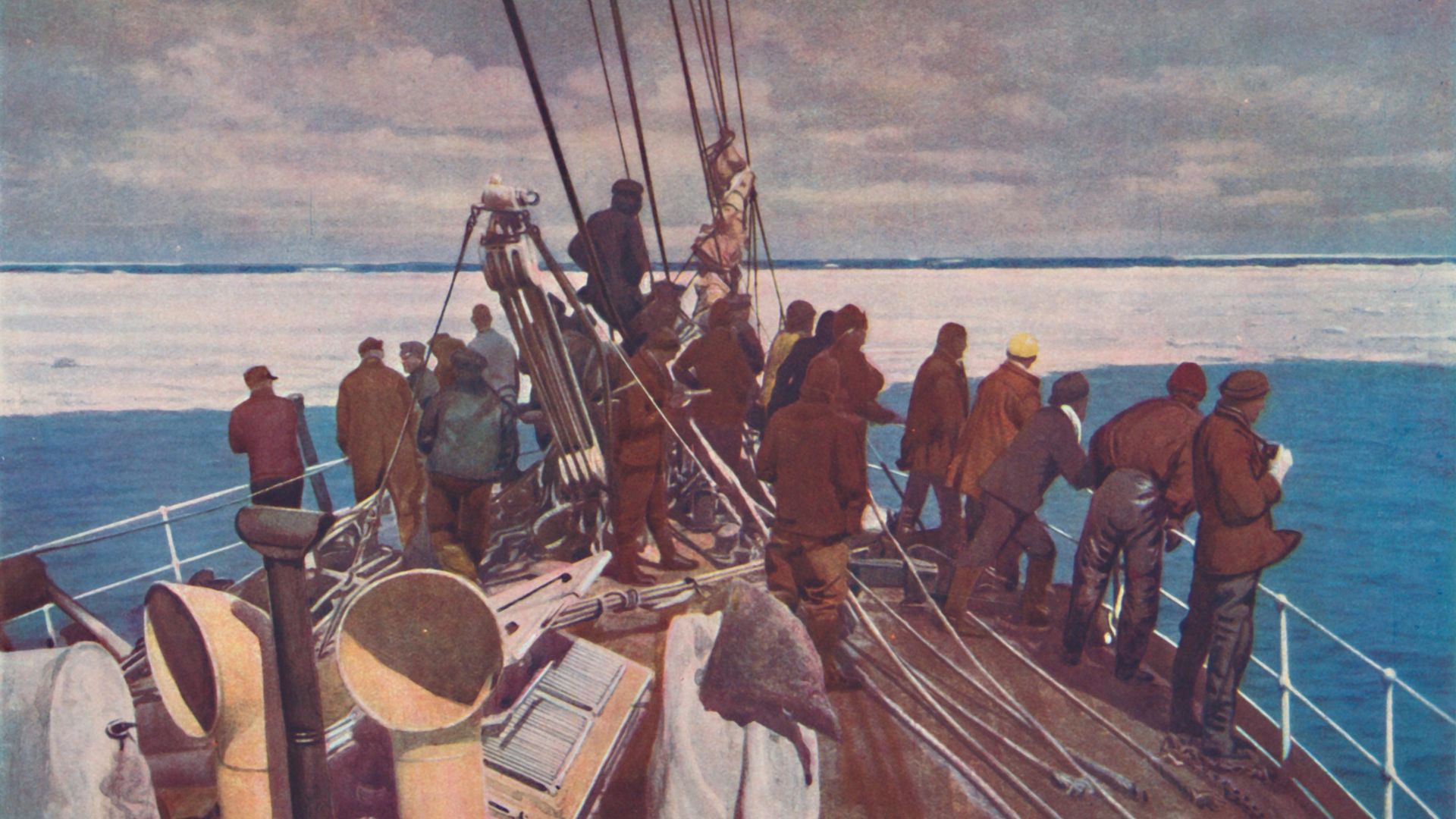
Peter Trudgill on Antarctica, and its most famous story.
Antarctica has been called “the continent without language”. True languages are spoken only by human beings, and although there are many visiting scientists and support workers in Antarctica these days, this is a modern situation: the continent has never had indigenous languages because it has never had an indigenous human population.
When I was at school, we all learnt about the glorious British failure of the Scott expedition to the South Pole. A party consisting of Robert Scott and four others from his 60-strong team arrived at the South Pole on the January 17, 1912, only to discover that a Norwegian expedition led by Roald Amundsen had beaten them to it by over a month, arriving on December 14. In anticipation of Scott’s arrival, and in case the Norwegians did not make it back alive, Amundsen had left a tent at the Pole with a letter in it. Amundsen had written it in his very individualistic polar-explorer kind of Dano-Norwegian, but it was addressed, in English, to “HM King of Norway”.
The Scott expedition’s tragedy was that, not only did they fail to become the first humans to reach the South Pole, as they had aspired to be, but all five of them died on their ghastly 900-mile trek on foot back towards their base.
All of us schoolchildren knew about this tragedy, but we were never told what happened afterwards. In fact, the news of the Norwegian success reached Norway immediately after Amundsen’s vessel arrived in Tasmania in March 1912. But the much more sombre news about the fate of the Scott expedition was not made known until February 1913, when the British expedition vessel arrived in New Zealand after a long delay while members of the team searched for and found the remains of their dead colleagues. A memorial service was held in St Paul’s Cathedral, attended by the King, with a crowd of 10,000 standing outside.
In Norway there had been much rejoicing about Amundsen’s success, but when the fate of the Scott expedition became known, the Norwegians reacted in a wonderfully Norwegian way. Writing recently in the Norwegian weekly Dag og Tid, Morten Søberg related that the speaker of the Norwegian parliament, the Storting, made a speech commemorating the five valiant fallen “sons of Britain”, while the members of parliament all stood in their honour. It was agreed that a message of condolence should be sent to Westminster. The content was very moving, though it is a testament to the problems of translation and communication that when the telegram arrived in London, it stated that the Norwegian nation had been “deeply snored” by the tragedy.
The speaker of the House of Commons, James Lowther, sent a reply of thanks, lauding the great feats of exploration and the pioneering arctic research carried out by Norwegians. This was read out in the Storting on February 17, 1913, having been translated – not into the Dano-Norwegian used by Amundsen but into the other, more de-danicised, form of Norwegian, Nynorsk, ‘new Norwegian’.
It is sad to report that Roald Amundsen later also died tragically. In 1928, he was killed in a plane crash on a mission to locate and rescue a team who had been exploring the Arctic in an airship which had itself crashed.
We do not know if Scott had any reservations about the possible humiliation of acting as Amundsen’s postman, but the letter to the Norwegian King which had been left in the tent at the South Pole was actually picked up by Scott’s party, and was then found by the team who discovered their bodies.
Back in the Norwegian capital Kristiania (now Oslo), the letter was handed to the (originally Danish) King Haakon and his (originally British) Queen Maud in May 1913, two years and three months after Scott, Wilson, Bowers, Evans and Oates had, with sinking hearts, found the tent at the South Pole which signalled their failure.











